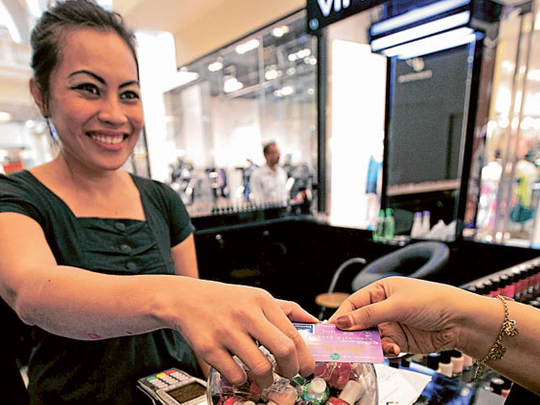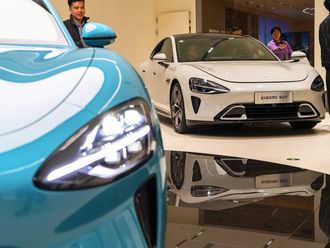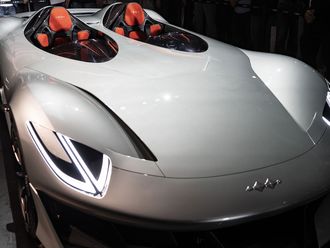
Dubai When it comes to UAE consumers embracing new technology for their many needs, including different modes of payment for goods and services, they are at the forefront. And that means the local market is quite likely to welcome payment processes in areas that are still untapped.
This endorsement comes from Ann Cairns, president of international markets at MasterCard Worldwide, who said the company is rolling out new products in markets where it thinks consumers are ready for them and can be scaled up.
"We think there are some things that consumers would naturally use their card products or their phones for, such as [buying] petrol, that aren't here in the market right now," she said.
"We think that anything we bring would just make it more convenient for consumers here. And because of the level of sophistication of this market, we think people would adopt it."
Cairns cites the enthusiastic response to near field communication — the tap-and-go technology — in Australia, Canada, the US and UK. Feeling it would be the same here, MasterCard last October reached an agreement with etisalat and RIM, the maker of the BlackBerry, to offer consumers a payment alternative to cash and cards using their smartphones. It is expected to go live in April.
She attributes the consumer savvy to the transient nature of the UAE population that's global in nature. "People are great travellers here as well," said Cairns, who was on her first visit to the region after she joined Mastercard last August. "You have many people coming in from outside.
"So, as people are coming in and out, they are seeing things in different parts of the world and they think ‘Oh, that's good and that works well over there.' I think there's a bit of an open-mindedness about it."
Bill payment for various services is one area which could be made easier. "In this market, people are taking money out and then going and paying their bills somewhere else," she added. "That's fairly an inefficient way to pay your bills. We feel we could do something that would just make it easier."
While there's a lot less concern about consumer adoption of new technology, she said it's not always easy to bring it as fast as one would like. "Because the infrastructure has to be got ready as well, especially if you are doing things like near field communication," Cairns said.
For that to happen, it means "working with everybody in the landscape to make sure that we deliver the next thing that people need."
Prepaid business
While MasterCard allows the culture of the specific country to determine whether more debit, credit or prepaid cards are to be issued, it has definitely seen a rise in the prepaid business around the world, including the Middle East.
That in fact led the company to acquire Travelex's prepaid card business in December 2010. The company sees prepaid cards as a way to not only increase financial inclusion in the country, but a good way to reach out to the youth.
"Certainly it is a product of the unbanked, as the youth are growing up and they don't have bank accounts yet," Cairns said. "Or they just like the security of a pre-paid card as they are travelling around the world instead of another type.
"We see a big rise in that, both domestically and across border. It's a natural thing because people have been using them for top-ups [and] links very well with the mobile world. There are many parts of the Middle East and Africa that are reliant on them."
In a recent study conducted in collaboration with VRL and TNS Global, an average of over 60 per cent of consumers in the Middle East say they would find prepaid products useful for remittances, salary and travel. Fifty-five per cent of consumers in the UAE and Egypt would find a prepaid remittance card useful.
Online payment solution is another area of focus for the Middle East division of the payments company, which completed 25 years in the UAE last week. That's not a surprise when e-commerce in the region is growing at double the rate of any other spending category.
The convergence of mobile and e-commerce has been instrumental in making MasterCard realise the importance of catering to online consumers' needs.
"We see that up to 40 per cent of the [internet] access is through some sort of a mobile device," said Michael Miebach, president for the Middle East and Africa, Mastercard Worldwide. "It's fast growing, [and] therefore it is a big focus for us."
MasterCard last year partnered with Aramex to deliver products bought from any site in the world.












